In 2020, 15 countries signed the Regional Comprehensive Economic Partnership (RCEP) following nearly a decade of negotiation. RCEP includes the ASEAN countries and five non-ASEAN trading partners. It went into force on 1 January 2022 across several member states, with the Phillippines the last to ratify in February of 2023. Although relatively nascent, it is the world’s most significant trade agreement regarding population and GDP. It covers 2.3 billion inhabitants or nearly 30% of the global population and roughly 30% of the US $105 trillion global GDP. The agreement should generate 2.8 million new jobs by 2030 according to economists. This mega-agreement creates a transformative path for the region’s SMEs, bringing them into the global value chain. However, bottlenecks remain for small businesses as they seek to capture regional opportunities to grow and scale. This article looks at critical aspects of the historic trade agreement and the substantial benefits for SMEs. Finally, we’ll explore options for the trade bloc’s SMEs to accelerate regional growth by leveraging innovative workforce solutions such as Deel’s Global Payroll.
The RCEP: What Is It?
The RCEP aims to promote economic integration among member countries by reducing tariffs, harmonizing trade rules and regulations, and facilitating trade between investment and services. The agreement’s signatories included the ten ASEAN member states (Brunei, Cambodia, Indonesia, Laos, Malaysia, Myanmar, the Philippines, Singapore, Thailand, and Vietnam) and five trading partners (Australia, China, Japan, New Zealand, and South Korea). India opted out but can rejoin later, with Bangladesh, Sri Lanka, and Hong Kong currently in talks to join.
The agreement also contained some firsts, including trade agreements between Japan and partner countries China and South Korea. Also a first, the RECP recognizes the region’s SMEs and their needs through specific provisions. The agreement came into force on 1 January 2022 with nine countries (Australia, Brunei, Cambodia, China, Japan, Laos, Singapore, Thailand, and Vietnam). Other countries ratified the agreement between 2022 and 2023. However, the Philippines in June 2023 became the last country for the agreement to come into force.
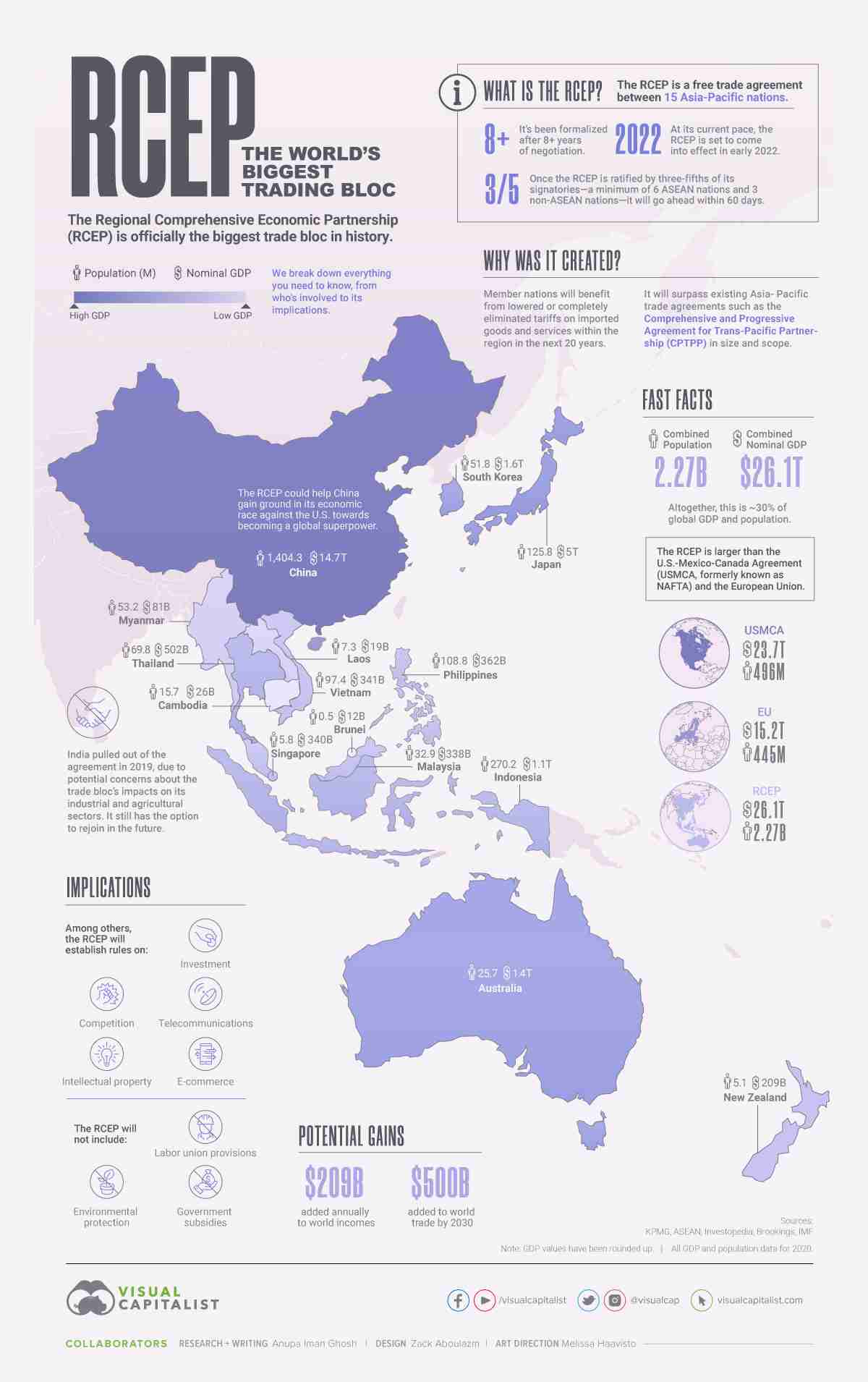
How Does RCEP Benefit SMEs?
Small and Medium-sized Enterprises (SMEs) stand to benefit considerably from the RCEP. SMEs are the backbone of ASEAN economies contributing significantly to employment and economic growth. There are more than 70 million MSMEs within ASEAN. Including non-ASEAN partners in the RCEP, that number swells to over 120 million. SMEs account for 97% of all enterprises, 69% of jobs, and 41% of GDP. The RCEP agreement presents numerous opportunities for SMEs to expand beyond their home markets. However, many SMEs are still unaware of the potential benefits of the agreement.
Key Highlights of the Agreement
- Reduced Tariffs and Trade Barriers: SMEs can benefit from reducing tariffs and trade barriers among member countries. Over 90% of tariffs will disappear on goods traded between member countries. Tariff removal will take place over 20 years. This gives SMEs access to a more extensive consumer base at a lower cost, making their products more competitive in new markets.
- Streamlined Regulations: RCEP aims to harmonize trade rules and regulations among member countries, making it easier for SMEs to navigate the complexities of cross-border trade. Specifically, the agreement harmonizes the provisions imposed by countries on the trade in goods. Now, countries can accept the product standards of other member countries where goods originate, significantly reducing administrative burden and compliance costs.
- Easier Access to Investment: The agreement facilitates investment among member countries by providing greater protection and predictability for investors. Key elements include national treatment and most-favored-nations treatment equalizing treatment for investors across the trade area. This opens up additional funding for SMEs, helping them establish a presence abroad.
- Enhanced Services Trade: RCEP also covers services trade, a crucial factor for SMEs engaged in sectors such as technology, consulting, education, and tourism. Restrictions on the movement of persons and commercial presence have been lifted under the agreement, opening avenues for SMEs to offer their services across borders.
Sectors Benefiting from the Trade Agreement
Various sectors are poised to benefit from the RCEP agreement due to improved market access and reduced trade barriers:
- Manufacturing and Export-Oriented Industries: Industries involved in manufacturing and exports, such as electronics, automotive, textiles, and machinery, are likely to gain from the elimination or reduction of tariffs.
- Agriculture and Food Processing: Agricultural products and processed foods stand to benefit from improved market access and reduced trade barriers. This is particularly relevant for countries with vital agricultural sectors.
- Services: The services sector, including IT, finance, education, healthcare, and tourism, will benefit from the liberalization of the services trade, opening up new opportunities for small businesses in these fields.
- E-commerce: With the rise of digital trade, the e-commerce sector is expected to grow significantly under RCEP. Small online retail and cross-border e-commerce businesses can capitalize on the expanded market benefiting from e-signatures and data privacy initiatives.
- Investment and Infrastructure: Businesses involved in infrastructure development, construction, and investment projects may find increased opportunities due to the agreement’s emphasis on investment facilitation. Additionally, the agreement should help meet the region’s $1.5 trillion annual infrastructure needs required by 2030.
How SMEs Can Leverage Deel in RCEP
SMEs, particularly those in the manufacturing sector, stand to benefit from the provisions of the RCEP. However, barriers persist for many SMEs expanding into new markets, especially across borders. Lack of well-structured organizations, unwillingness to look beyond home markets, and market insights are just a few of the barriers. For companies that decide to pursue opportunities, challenges are many. These challenges include navigating local employment laws and regulations, managing payroll and benefits, ensuring compliance with tax requirements, and addressing cultural and language differences. Additionally, these complexities can be particularly daunting for SMEs with limited resources and expertise in international business operations. The RCEP agreement specifically addresses some of these issues through programs for capacity building, cross-border partnerships, and innovation.
For those organizations willing to compete regionally, platforms like Deel can strengthen your competitive advantage. The company offers comprehensive tools for managing and expanding a workforce across borders. Deel ranks as the #1 Global HR platform, allowing companies to rapidly onboard global teams in as little as 5 minutes. Here, we’ll explore how companies can use Deel to navigate the complexities of entering new markets within the RCEP region.
Key Benefits of Deel Global Payroll
- Compliance and Legal Expertise: Deel provides small businesses access to legal experts well-versed in local labor laws and regulations. The company maintains in-house advisors with expertise in local jurisdictions in over 100 countries. This enables SMEs to structure their employment contracts, benefits packages, and other HR-related matters in compliance with local laws.
- Payroll Management: Deel’s platform facilitates seamless payroll management across different countries. Deel covers 12 of the 15 countries in the RCEP trade area. This is crucial for businesses aiming to establish a presence in multiple RCEP member countries while maintaining accuracy and timeliness in paying their workforce.
- Contract Standardization: Deel’s platform offers standardized employment contract templates that are tailored to specific countries’ requirements, saving companies valuable time and effort.
- Currency Conversion and Payment: Deel’s platform offers competitive exchange rates and efficient payment solutions. The company supports over 120 currencies. Deel supports various payment methods, including credit and debit cards, direct debit, Coinbase, etc
- Robust Integration: Deel allows integration with popular account tools such as Quickbooks, NetSuite, and Xero. Additionally, the company also supports HR and hiring solutions with custom APIs available as well.
Benefits for SMEs Partnering with Deel
By utilizing third-party workforce solutions like Deel, small businesses can seamlessly integrate with the opportunities presented by the RCEP agreement:
- Swift Market Entry: The streamlined processes offered by third-party solutions allow SMEs to enter new markets more quickly and with fewer bureaucratic hurdles. This agility is essential in capitalizing on the benefits of the RCEP agreement.
- Risk Management: RCEP brings about changes in regulations and business environments. Third-party solutions help SMEs navigate these changes and reduce legal and compliance risks.
- Flexibility for Market Testing: SMEs can use third-party solutions to test the waters in new markets without making significant upfront investments. This flexibility aligns with RCEP’s goal of facilitating gradual market integration.
Early Days with Massive Upside Ahead
RCEP presents promising opportunities for SMEs to expand into new markets across the Asia-Pacific region. Cambodia, one of the ASEAN nations, has already begun to reap the benefits of the agreement. For the first 10 months, Cambodia earned over $6 billion from exports to members of the RCEP, a 25% year-over-year increase. With tighter economic integration, we expect to see more nearshoring opportunities as companies seek to capitalize on more favorable trade terms. However, this potential presents challenges in managing an effective regional workforce. It’s still early days for the agreement, but now is the time for the region’s SMEs to explore opportunities and plan ahead. From startups and sustainability to nearshoring, opportunities abound.
To succeed, SMEs must forge the right partnerships across borders in order to thrive. As regional development accelerates, business confidence in crossing borders continues to increase. We’ve seen that in certain sectors e.g. consumer, e-commerce, F&B, and renewables. At present, this confidence appears confined to conglomerates in certain markets. However, technology continues to level the playing field. Now, SMEs can easily access numerous third-party tools to harness the growing opportunities available. These tools range from CRM, and collaboration to HR, and so much more. Companies such as Deel help companies overcome the challenges of cross-border market expansion and workforce integration. Deel’s expertise in compliance, payroll management, contract standardization, and risk mitigation can prove vital for SMEs they compete and thrive in regional growth markets.
For more information, head over to Deel to learn more or contact us at ClearSky 2100 and be sure to follow us on LinkedIn.
Disclosure: At ClearSky 2100, our portfolio partly consists of affiliate partnerships. We may earn a small commission from buying links on our site at no cost to you.


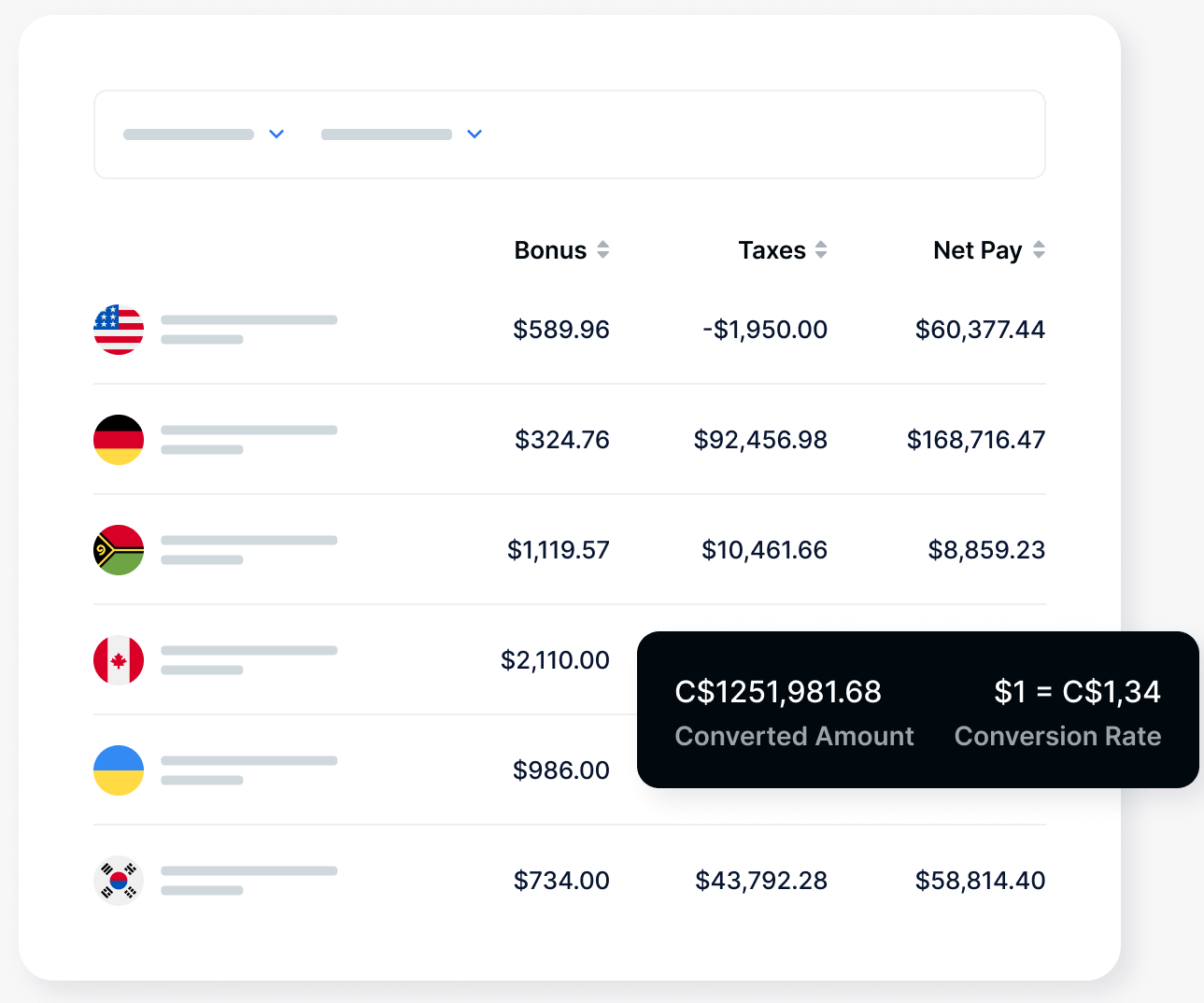
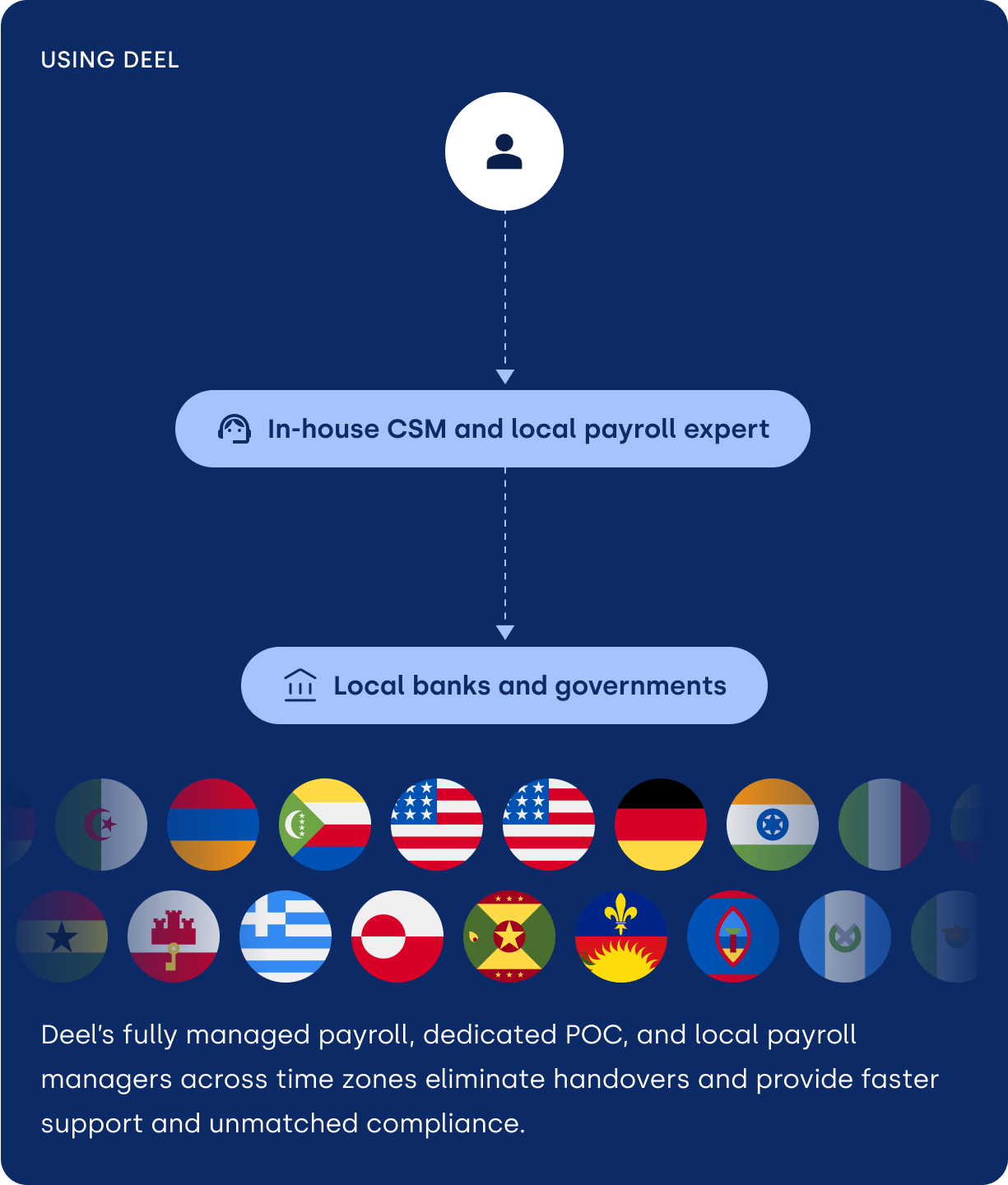
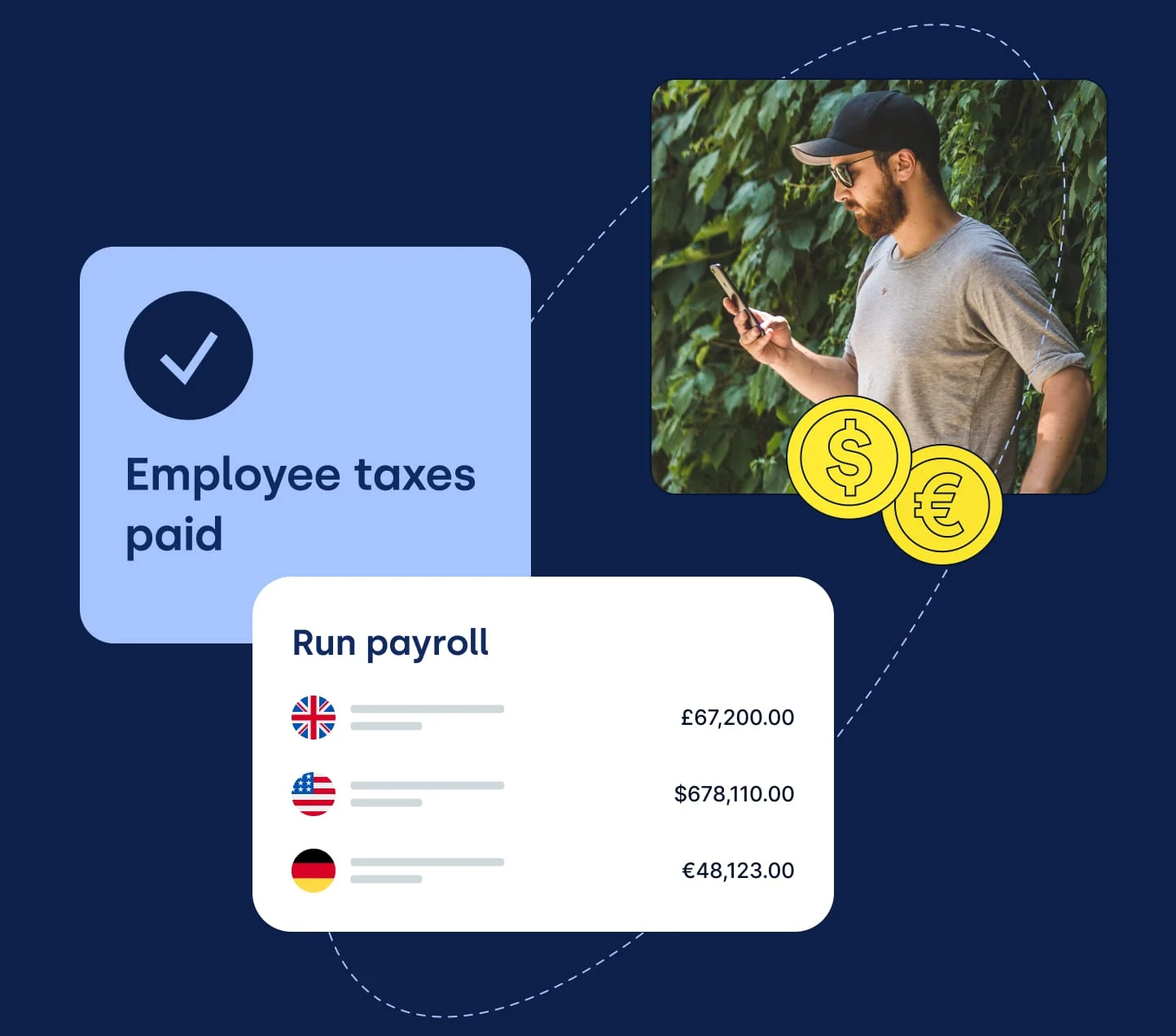
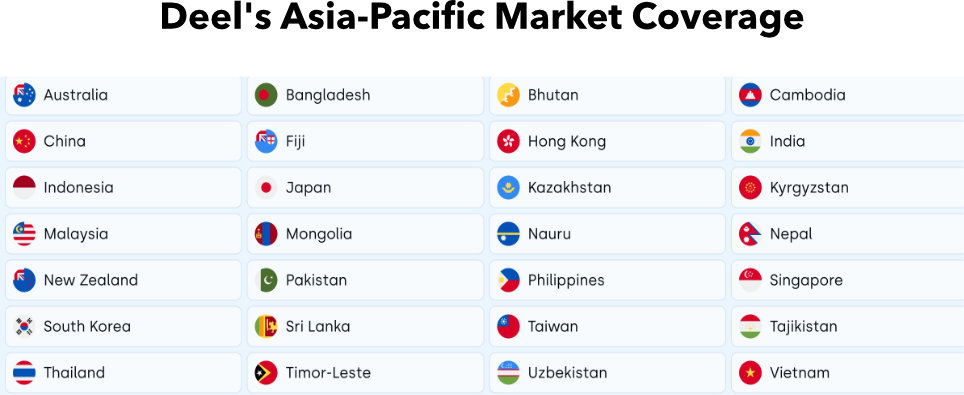



Pingback: Friendshoring with Deel: Gain the Edge in Supply Chain Resiliency - ClearSky 2100 Ventures